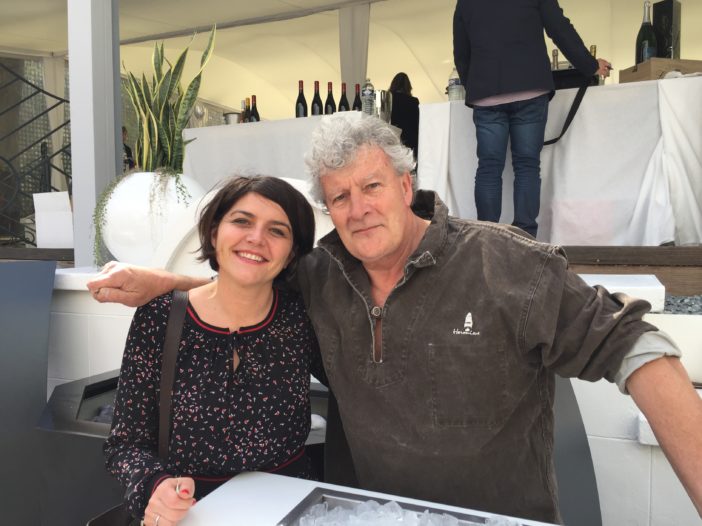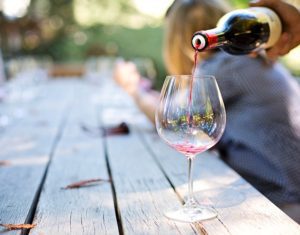
Le 20 novembre 2018 se sont déroulées les premières assises de l’oenotourisme au palais des congrès de Paris.
Cet évènement avait pour but de faire ressortir les actions indispensable à mettre en place pour accroître le développement de l’oenotourisme ainsi que son rayonnement.
Les 20 mesures
Les 20 mesures qui ont été retenues sont (source : https://www.tourmag.com/Assises-de-l-oenotourisme-quelles-sont-les-20-mesures-qui-vont-booster-la-filiere_a96164.html) :
1. Donner à la France le leadership mondial en matière de hiérarchisation, de segmentation et de lisibilité de l’offre oenotouristique avec le lancement d’une démarche d’expérimentation autour d’un classement des expériences oenotouristiques en lien étroit avec les professionnels, tout en continuant à faire progresser la qualité de l’offre oenotouristique française en renforçant les exigences du label Vignobles & Découvertes.
2. Permettre aux destinations labellisées Vignobles & Découvertes de prendre la main sur l’animation nationale du réseau et de construire leur propre stratégie de promotion avec la création d’une fédération des destinations labellisées Vignobles & Découvertes.
3. Créer une chaire Oenotourisme en lien avec une université ou un établissement de formation professionnelle supérieure français et la mise en place d’un collège des formations en matière d’oenotourisme, afin d’assurer l’adéquation des offres de formation avec les besoins de la profession.
4. Réaliser un MOOC (Catalogue de formation en ligne) dédié à l’oenotourisme et réactualisation du très populaire « Guide de l’accueil en caves » réalisé par Atout France.
5. Intégrer la notion de « Fêtes viticoles responsables » définie par Vin & Société au label Vignobles & Découvertes. A terme, le label Vignobles & Découvertes, en tant qu’outil de référencement de l’offre oenotouristique française, devra permettre de labelliser toutes les fêtes viticoles responsables, indépendamment de leur rattachement ou non à une destination.
6. En concertation avec les autorités compétentes, œuvrer à la définition du concept de vendanges touristiques afin de rassurer les prestataires oenotouristiques qui souhaiteraient développer cette activité très demandée par les touristes mais qui craignent que cette pratique soit assimilée à du travail irrégulier.
7. Favoriser la compatibilité des normes d’accessibilité avec l’architecture historique des caves et caveaux de dégustation qui souhaitent s’ouvrir à la visite. La possibilité de faciliter les dérogations dans des cas précis doit être étudiée.
8. Encourager auprès des autorités compétentes le lancement d’une réflexion sur les conditions de construction de bâtiments à vocation touristique sur des terres agricoles.
9. Intégrer l’oenotourisme dans les grandes enquêtes publiques (INSEE, EVE) et prendre en compte les recettes générées par la vente de vin aux touristes sur site dans les comptes du tourisme.
10. Doter la filière d’une véritable capacité d’observation et d’intelligence économique en établissant un réseau de partenaires capables de porter une démarche d’observation pérenne.
11. Réaliser une étude des attentes des clientèles étrangères, de la distribution sur les marchés et des facteurs clés de succès en matière d’oenotourisme.
12. Encourager un fonctionnement inclusif et collaboratif en matière de gouvernance en soutenant les initiatives portées par le Cluster Oenotourismede Atout France, le Conseil Supérieur de l’Oenotourisme et la fédération des destinations labellisées Vignobles & Découvertes.
13. Développer les synergies de l’oenotourisme avec des filières voisinescomme le spiritourisme et le tourisme brassicole via la création d’un groupe de travail incluant des représentants de ces filières.
14. Créer un programme « oenotourisme » au sein du CNIV, en partenariat avec Atout France, pour favoriser les synergies en matière d’organisation d’événements de promotion de la France sur les marchés étrangers et d’accompagnement des interprofessions à l’export.
15. Coordonner un grand événement oenotouristique à l’échelle nationale en fédérant autour d’une même date les initiatives développées dans le cadre du label Vignobles & Découvertes.
16. Lancer des Trophées français de l’Oenotourisme, en partenariat avec le magazine Terre de Vins et Atout France, afin de valoriser et encourager les domaines et châteaux viticoles qui se mobilisent au quotidien pour mettre en place des propositions oenotouristiques fortes et adaptées aux demandes de la clientèle, particulièrement au sein des propriétés labellisées Vignobles & Découvertes.
17. Favoriser la numérisation des entreprises du secteur en relation avec BpiFrance.
18. Mettre en place d’une convention cadre avec les grandes chaînes hôtelières françaises afin de leur permettre d’intégrer l’oenotourisme comme une proposition incontournable de leur offre.
19. Mettre en place d’une convention alliant culture et oenotourisme afin d’encourager la mise en valeur du patrimoine oenoculturel de chaque destination, notamment en permettant aux grands sites culturels de proposer des dégustations.
20. Dynamiser la distribution en incitant les acteurs majeurs de la distribution touristique à intégrer davantage l’oenotourisme dans leur offre.




